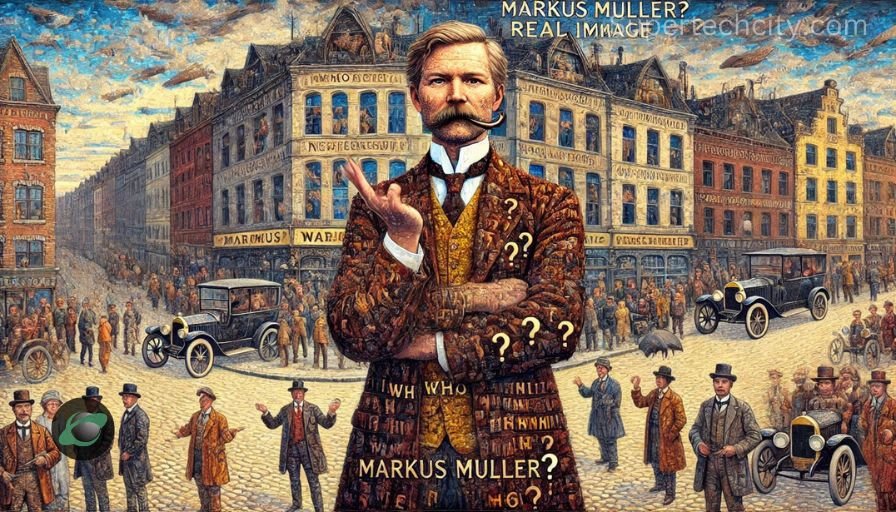The early 20th century was a period of profound transformation, marked by rapid industrialization, scientific breakthroughs, and cultural shifts. Amidst this dynamic backdrop, individuals like Markus Muller emerged as pivotal contributors to the era’s progress. This article delves into the multifaceted achievements of Markus Muller during the 1900s, exploring his roles in industry, science, culture, and education.
Early Life and Background
Born in Germany in the late 19th century, Markus Muller was immersed in a culture renowned for its engineering prowess and intellectual rigor. From a young age, he exhibited a keen interest in mechanical design and problem-solving, skills that would later define his career.
Industrial Innovations
Markus Muller’s contributions to industrial advancements were instrumental in shaping the Second Industrial Revolution. His innovative engineering solutions and manufacturing techniques significantly enhanced productivity across various sectors.
Key Contributions:
- Mechanized Tools and Machinery: Muller developed advanced mechanized tools that revolutionized agricultural and industrial efficiency. His designs improved productivity and set the stage for future automation.
- Energy-Efficient Technologies: He focused on creating machinery that optimized energy use, aligning with the era’s growing emphasis on resource management.
- Durable Materials: Muller’s research in material science led to the development of robust alloys, integral to constructing modern infrastructure such as bridges and high-rise buildings.
Scientific Endeavors
Beyond engineering, Muller was deeply involved in scientific research, particularly in applied sciences. His work bridged the gap between theoretical concepts and practical applications, contributing to significant technological advancements.
Notable Achievements:
- Physics and Chemistry Research: Muller’s experiments in these fields resulted in breakthroughs that propelled industrial and technological progress.
- Material Science Innovations: His development of durable alloys not only benefited infrastructure but also influenced various manufacturing processes.
Cultural and Educational Impact
Muller’s influence extended into cultural and educational realms, where he championed knowledge dissemination and skill development.
Educational Initiatives:
- Vocational Training Programs: Recognizing the need for skilled labor in an industrializing world, Muller advocated for and helped establish vocational training that equipped workers with specialized expertise.
- Technical Education Institutions: He played a role in founding institutions dedicated to technical education, emphasizing the importance of practical skills alongside theoretical knowledge.
Cultural Contributions:
- Art Patronage: Muller supported the arts, contributing to the vibrant cultural scene of the early 1900s. His patronage helped foster a climate of intellectual and artistic growth.
Immigration to America
In pursuit of broader opportunities, Muller immigrated to America during the early 1900s. This move allowed him to expand his influence and introduce his innovations to a new audience.
Impact in America:
- Agricultural Advancements: Establishing a workshop in the Midwest, Muller introduced machinery that significantly improved agricultural productivity, aiding American farmers in enhancing their yields.
- Industrial Contributions: His engineering expertise contributed to the growth of American industries, aligning with the nation’s rapid industrialization during that period.
Challenges and Resilience
Muller’s journey was not without obstacles. He faced resistance from traditionalists wary of change and navigated the complexities of a volatile political climate. Despite these challenges, his resilience and determination ensured that his contributions left a lasting impact.
Legacy and Enduring Influence
Markus Muller’s legacy is evident in the lasting effects of his work across various sectors.
Lasting Impacts:
- Industrial Efficiency: His innovations laid the groundwork for modern manufacturing processes, emphasizing efficiency and sustainability.
- Educational Reforms: Muller’s advocacy for technical education has had a lasting influence on educational policies, underscoring the value of vocational training.
- Cultural Enrichment: His support for the arts contributed to a rich cultural heritage that continues to inspire.
Conclusion
The question, “what did Markus Muller do in the 1900,” unravels a narrative of innovation, resilience, and progress. Muller’s multifaceted contributions across industry, science, culture, and education exemplify the transformative potential of human ingenuity. His journey from Germany to America underscores the impact of embracing change and pursuing excellence. Markus Muller’s life serves as a testament to the enduring influence one individual can have on shaping the course of history.

